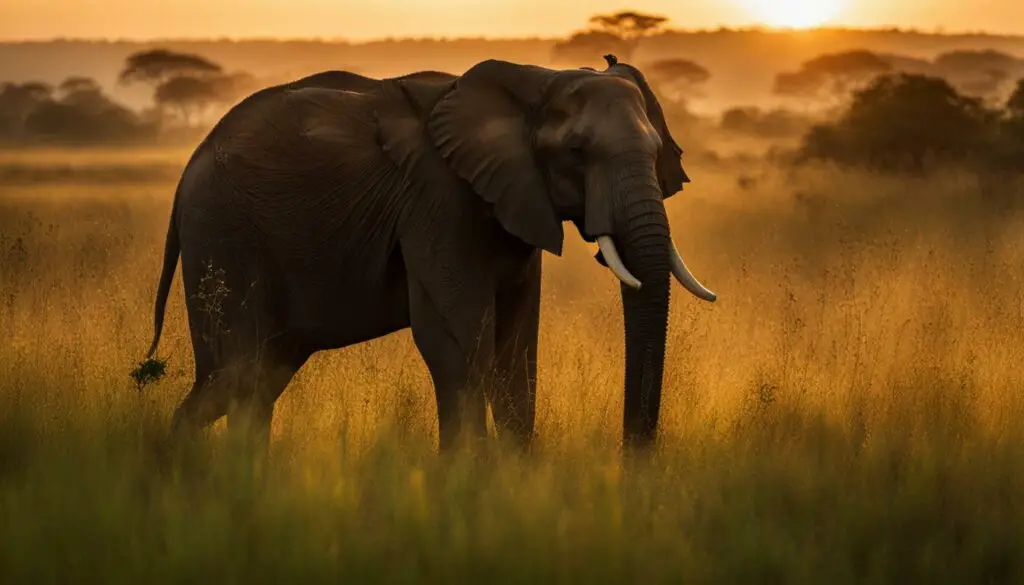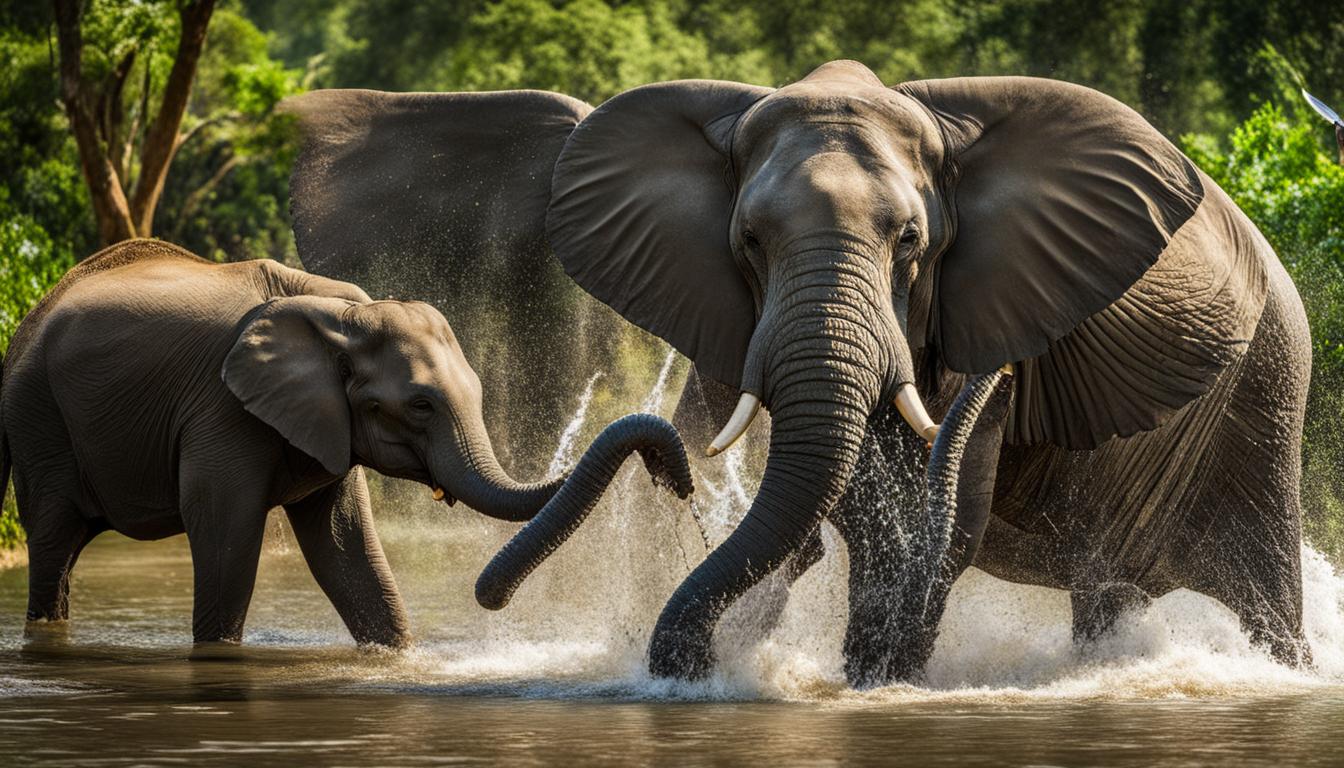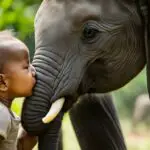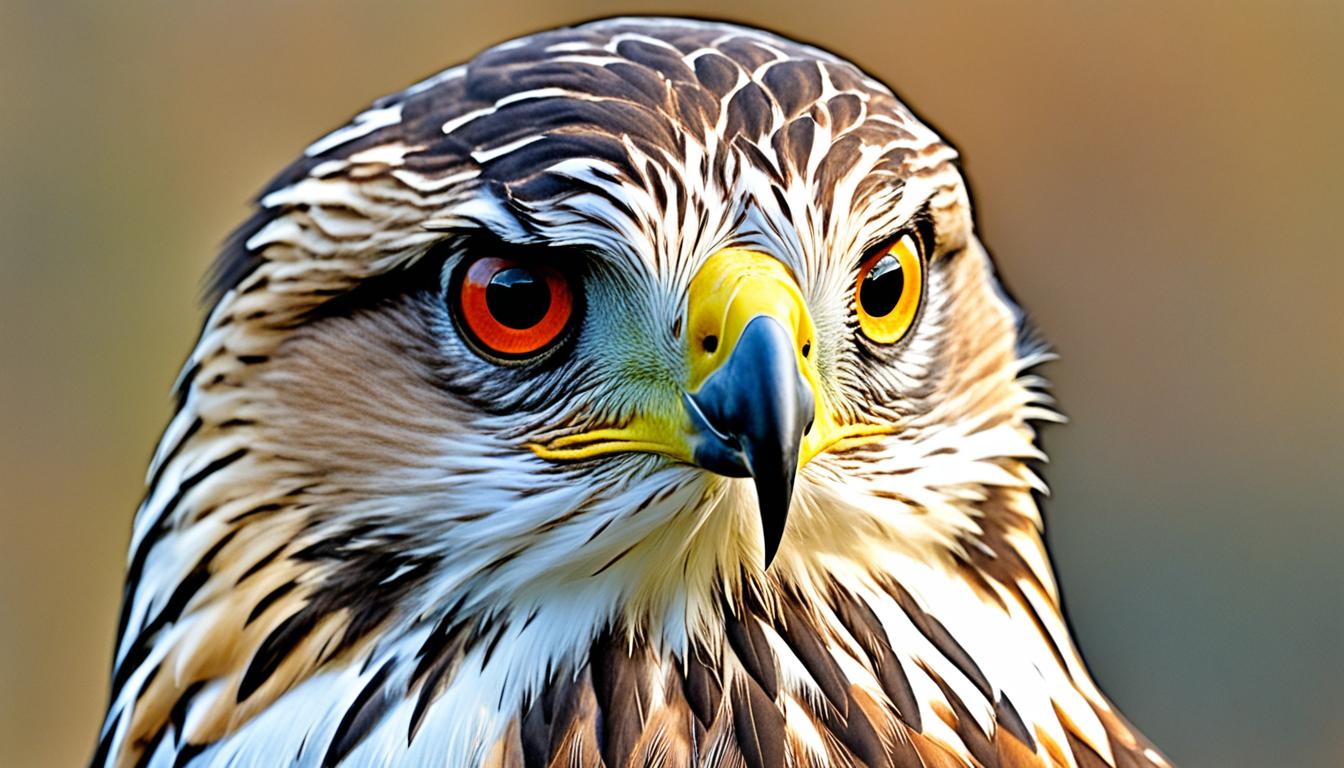You’ll be amazed by the fascinating behavior of elephants, both in the wild and in captivity. From their intricate social structures to their remarkable communication skills, elephants display a level of intelligence and emotional intelligence that is truly extraordinary. Let’s delve into the world of elephant behavior and discover the differences between their natural lives and the challenges they face in captivity.
In the wild, elephants live in large family units, forming tight social bonds and displaying constant companionship. They communicate through vocalizations, body language, and physical contact, showcasing their high level of intelligence and emotional awareness. Unfortunately, captivity often deprives them of these social interactions and natural behaviors.
Keep reading to explore the impact of captivity on elephant behavior, including feeding habits, migration patterns, reproductive behavior, and cognitive abilities. Discover the physical and emotional toll that captivity takes on these magnificent creatures, and the ethical concerns raised by their captivity. We’ll also discuss the need for improved living conditions and conservation efforts to ensure the well-being and freedom of elephants.
The Impact of Captivity on Elephant Behavior
When elephants are confined to captivity, their natural behavior undergoes significant changes that can have detrimental effects on their overall well-being. Let’s explore how captivity affects various aspects of elephant behavior.
Feeding Habits
In the wild, elephants have a complex feeding behavior, consuming large quantities of vegetation and drinking significant amounts of water. They have distinct migration patterns, traveling long distances in search of food and water.
However, in captivity, elephants often experience inadequate diets that fail to meet their nutritional needs. They are deprived of the opportunity to engage in natural foraging behaviors, which can lead to malnutrition and digestive problems.
Migration Patterns
Wild elephants have a strong instinct for migration, traveling vast distances in search of resources. These journeys allow them to explore new territories and maintain a balanced ecosystem.
In captivity, elephants are confined to small enclosures, limiting their physical movement and preventing them from engaging in natural migration patterns. This lack of space and freedom can cause frustration and boredom, leading to behavioral issues.
Reproductive Behavior
Elephants in the wild have well-established reproductive behaviors that contribute to the survival of their species. However, captivity poses significant challenges to their reproductive success.
In captivity, elephants often experience difficulties in breeding. Few calves are born, and those that are often face reproductive issues and early mortality. The restricted social dynamics and stressful environments can negatively impact their reproductive health.
Cognitive Abilities
Elephants possess remarkable cognitive abilities, demonstrating problem-solving skills, memory retention, and self-awareness. In the wild, they engage in complex social interactions and learn from their experiences.
However, in captivity, elephants are deprived of cognitive stimulation and challenges. Without adequate mental enrichment, they may experience boredom and frustration, leading to the development of abnormal behaviors.
| Aspect of Elephant Behavior | Impact of Captivity |
|---|---|
| Feeding Habits | Inadequate diets, lack of natural foraging behavior |
| Migration Patterns | Confined spaces, inability to engage in natural migration |
| Reproductive Behavior | Difficulties in breeding, low reproductive success |
| Cognitive Abilities | Lack of cognitive stimulation, boredom, and frustration |
It is crucial to understand the impact of captivity on elephant behavior to advocate for better conservation practices and promote the well-being of these magnificent creatures. By addressing the challenges elephants face in captivity, we can strive towards a more compassionate and sustainable future.
The Physical and Emotional Impact of Captivity on Elephants
Elephants in captivity are subjected to a range of physical and emotional challenges that significantly impact their well-being. Restricted movement and lack of exercise have profound effects on their physical health. In the wild, elephants engage in constant physical activity, walking long distances to fulfill their exercise needs. This natural behavior is essential for maintaining their joint and bone health.
However, in captivity, elephants are often confined to small spaces, denying them the opportunity to engage in natural movement and exercise. This lack of physical activity can lead to various health issues, including arthritis, foot abscesses, and chronic joint problems. Without adequate exercise, their overall fitness declines, and their quality of life suffers.
Furthermore, wild elephants have long lifespans, living up to 60 or 70 years. In contrast, captive elephants have significantly shorter lifespans, usually dying before the age of 40. The chronic health problems they face, such as tuberculosis, arthritis, and foot abscesses, contribute to their premature death. The physical toll of captivity on elephants is undeniable and raises serious concerns about their overall welfare.
| Physical Impact of Captivity on Elephants | Health Issues |
|---|---|
| Restricted movement and lack of exercise | Arthritis |
| Confined spaces | Foot abscesses |
| Prolonged chaining | Chronic joint problems |
| Tuberculosis |
In addition to the physical impact, captivity also takes a toll on the emotional well-being of elephants. They are highly intelligent and social animals that rely on complex social interactions and mental stimulation for their overall mental health. The forced separation from their natural social structures and the suppression of their natural behavior and instincts through abuse and mistreatment cause immense emotional suffering.
The emotional distress experienced by captive elephants is evident in their abnormal behaviors, such as repetitive swaying, rocking, and self-mutilation. These behaviors are indicators of their deep unhappiness and frustration. Elephants in captivity deserve to live a life free from physical and emotional suffering, where their natural behavior and social needs are respected and preserved.
The Ethical Dilemma of Elephant Captivity
The captivity of elephants raises significant ethical concerns regarding their behavior, welfare, and rights. These intelligent and emotional beings require complex social interactions, mental stimulation, and the freedom to exhibit their natural behaviors. However, keeping them in captivity deprives them of these essential aspects of their lives, resulting in immense physical and emotional distress.
Elephants are highly social animals that form close-knit family units in the wild. They rely on constant companionship, social bonding, and communication with their fellow herd members. In captivity, elephants are often isolated or kept in small groups, denying them the opportunity to engage in their natural social behaviors. The breaking of social bonds due to transfers between facilities further disrupts their natural social structures and causes distress.
Furthermore, captive elephants are subjected to abuse, beatings, and improper living conditions that violate their rights as sentient creatures. They suffer from physical ailments such as arthritis, foot abscesses, and chronic joint problems due to the lack of physical activity and confinement to small spaces. The mistreatment and deprivation of their natural behavior and instincts not only cause physical suffering but also inflict emotional trauma.
| Impact of Captivity on Elephant Behavior | Ethical Concerns |
|---|---|
| Deprivation of natural social behaviors and bonds | Violation of rights as sentient beings |
| Lack of cognitive stimulation and challenges | Physical and emotional suffering |
| Inadequate diet and inability to engage in natural foraging |
Considering the profound impact of captivity on elephant behavior and well-being, there is a pressing need for improved living conditions and a shift towards sanctuaries and conservation efforts. Many organizations and advocates are working tirelessly to promote awareness and advocate for the rights and welfare of elephants in captivity. By recognizing the ethical concerns surrounding elephant captivity, we can work towards a more compassionate and sustainable future for these magnificent creatures.

Conclusion
Throughout this article, we have explored the fascinating behavior of elephants in the wild and in captivity. It is evident that elephant behavior is deeply influenced by their social structures, communication methods, and cognitive abilities.
However, when elephants are held in captivity, their behavior undergoes a significant and often detrimental transformation. Ethical concerns arise due to the deprivation of their natural behaviors, social bonds, and environmental needs.
In order to address these concerns and ensure the well-being of elephants, it is crucial to prioritize conservation efforts and the establishment of sanctuaries. By placing emphasis on the freedom and welfare of these magnificent creatures, we can work towards creating a more compassionate and sustainable future.
How has the behavior of elephants in captivity affected their adaptation to their natural environments?
The behavior of elephants in captivity has had a significant impact on their elephants’ environmental adaptations. Being confined to limited spaces and deprived of natural stimuli, captive elephants often face challenges in adapting to their natural environments. The lack of opportunities for social interactions, restricted movement, and absence of natural foraging behaviors can hinder their ability to develop essential skills crucial for survival in the wild. Consequently, these elephants may struggle to integrate back into their original habitats if released.
FAQ
How do elephants behave in the wild and in captivity?
Elephants in the wild live in large family units with tight social bonds and constant companionship. In captivity, elephants are often kept alone or in small groups, depriving them of socialization and natural behavior.
What is the impact of captivity on elephant behavior?
Captivity significantly affects elephant behavior, leading to physical and emotional distress, shortened lifespans, and the deprivation of natural behaviors and social bonds.
How do elephants feed and migrate in the wild?
Wild elephants have complex feeding behaviors, consuming large quantities of vegetation and drinking significant amounts of water. They also have distinct migration patterns, traveling long distances in search of food and water.
How is elephant feeding and migration affected in captivity?
In captivity, elephants are often fed an inadequate diet that does not meet their nutritional needs. They are also deprived of the opportunity to engage in natural foraging behaviors and migration.
What are the physical and emotional impacts of captivity on elephants?
Captive elephants are often confined to small enclosures, limiting their physical movement and ability to exhibit natural behaviors. They suffer from various health issues, including arthritis and chronic joint problems, and experience psychological and emotional distress.
What is the ethical dilemma of elephant captivity?
The captivity of elephants raises ethical concerns due to the deprivation of their natural behavior, social bonds, and environmental needs. It also involves the mistreatment and abuse of these sentient creatures.
What is the lifespan of elephants in the wild and in captivity?
Wild elephants can live up to 60 or 70 years, while captive elephants usually die before the age of 40 due to chronic health problems and mistreatment.
What are the conservation efforts for elephants in captivity?
Many organizations and advocates are working towards promoting awareness and advocating for the rights and welfare of elephants in captivity. The focus is on improving living conditions and supporting sanctuaries that prioritize their well-being and freedom.











